In the border regions of Peru and Colombia, remote areas with poorly traversable geography along the Putumayo River, there are communities that, for a long time, have struggled against the lack of quality medical services in the midst of a complex reality. The most vulnerable populations such as pregnant women and newborns have often borne the brunt.
It is in this scenario that Mamas de la Frontera emerges as an engine of change. This initiative is an extension of the successful Mamas del Río project, which focuses on improving maternal and child care and reducing neonatal mortality in the Loreto region, Peru.
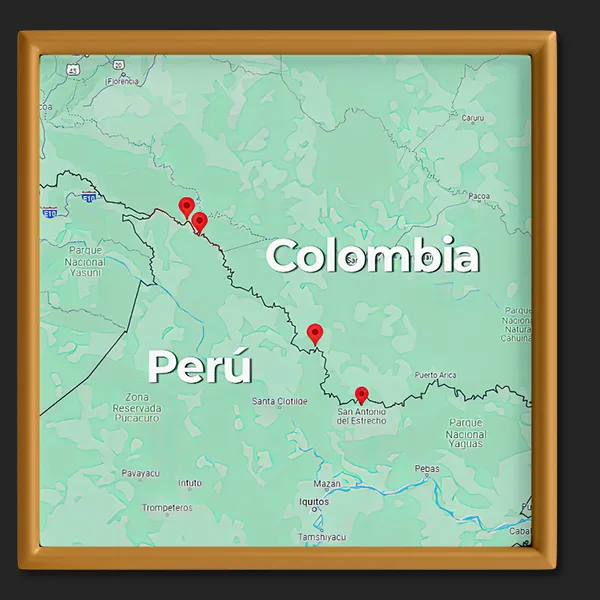
Mamas de la Frontera was implemented in the districts of San Antonio del Estrecho and Teniente Manuel Clavero in the department of Loreto, in Peru, and in the municipalities of Puerto Leguízamo and El Encanto – San Rafael, in Colombia. Various rural and native communities located along the banks of the Putumayo River were included, including indigenous populations such as the Kichwa, Murui, Huitoto, Ocaina, Bora, Maijuna and Cocama ethnic groups.
During the reconnaissance trip in February 2020, the project was presented to the local authorities of each nucleus and their suggestions were collected. The communities, their leaders and their inhabitants were an integral part of this process. However, in March 2020, the COVID-19 pandemic spread across the world, causing the project to adapt to address this new threat.
The absence of telephone connection and lack of access to electricity also posed difficulties for the implementation of the project. Likewise, the presence of armed groups in the border area represented another challenge. Faced with this, the Mamas de la Frontera team demonstrated resilience and commitment by implementing alternative strategies to guarantee the continuity of activities.
The COVID-19 pandemic did not deter the Madres de la Frontera teams. Adapting to the new normal, the intervention included the promotion of knowledge about prevention and vaccination against the virus, as well as the development of educational materials adapted to the culture of indigenous communities. Specific prevention measures were effectively promoted in these communities.
The implementation of Mamas de la Frontera was divided into two phases: the first focused on the delivery of immediate aid to mitigate the impact of the pandemic, such as the distribution of prevention kits (masks, disinfectant gel, etc.) and the promotion of preventive measures.
The second phase focused on comprehensive care for pregnant women and newborns. Community Health Workers (CHWs) played a fundamental role in this stage. The CHW is a community leader aware of the needs of his people. They act voluntarily for the well-being of their communities. They made home visits, sharing knowledge about maternal-neonatal care and COVID-19 prevention.
Great coverage was achieved in the 30 selected communities, with 89% of registered pregnant mothers receiving at least three home visits from supervisors and ACS. In addition, good training coverage was achieved for traditional midwives and health personnel, managing to train 31 ACS, 43 traditional midwives and 56 health professionals. Additionally, more than 5,000 people in these communities benefited from training in maternal-neonatal health and preventive measures against COVID-19.
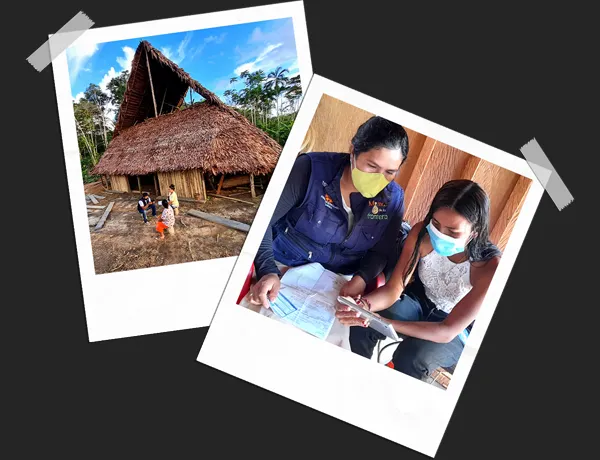
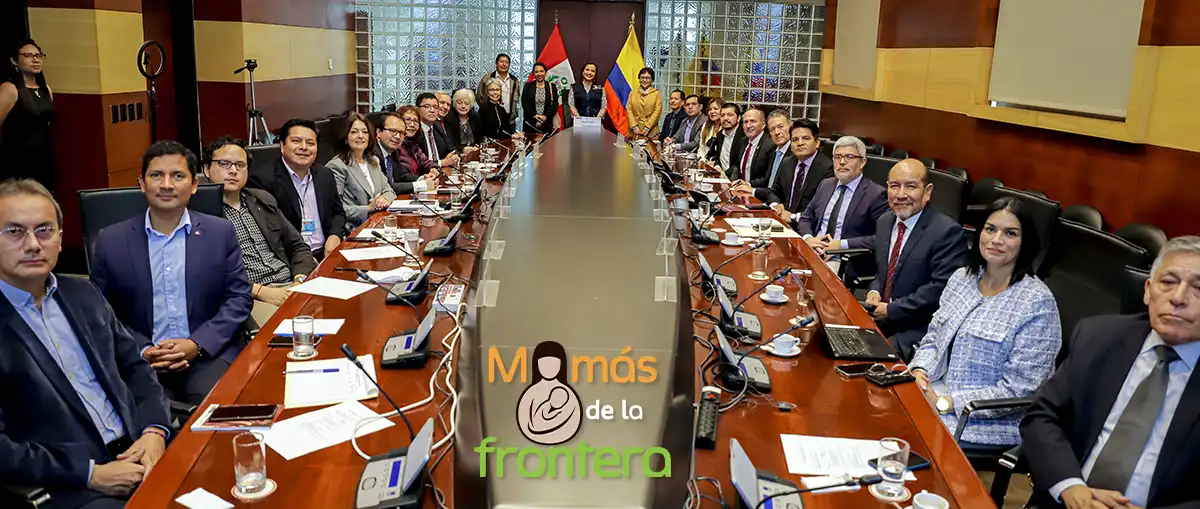
Following these great results from the first stage of implementation of the program and after much expectation, on October 20, 2023, the second stage of Mamás de la Frontera was launched, which incorporates new components to the program.
During the first six months, an evaluation was carried out to assess the health status of the population and these new components were designed. These included the surveillance and monitoring of vital events, such as detailed records of pregnant women and children up to the first year of life. The Community Health Workers (CHWs) expanded their schedule of home visits, making up to eleven visits that range from pregnancy to the child's first year.
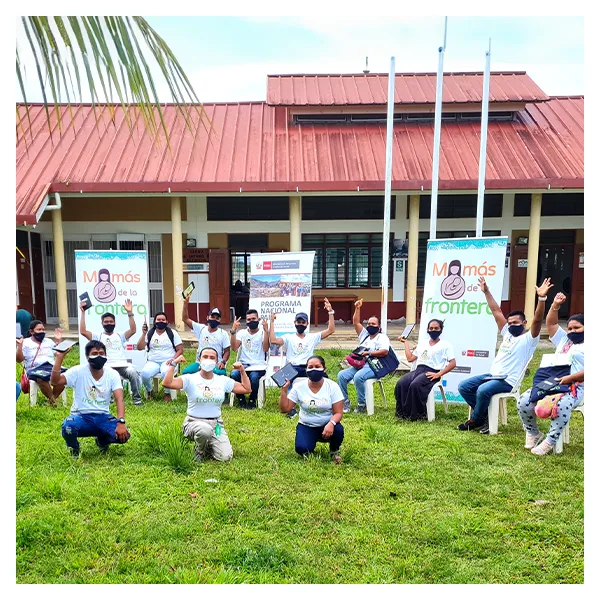
The new components also include the promotion of controls for growth and development (CRED), vaccination, breastfeeding and complementary feeding, attachment and non-violent parenting, prevention of anemia, family planning, and referral to government programs, such as the Itinerant Social Action Platforms (PIAS) and the JUNTOS program. The CHWs are equipped with tablets running the CommCare app to effectively manage cases and monitor them in real time.
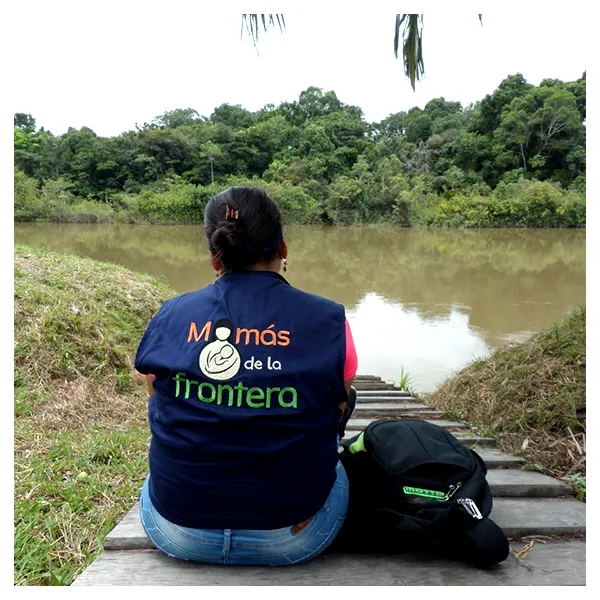
In summary, Mamas de la Frontera represents, once again, the success of community-based health interventions. The figures analyzed speak for themselves. In its first stage, the community health agents of Mamás de la Frontera made 398 home visits, which continue to increase in this second stage and are expected to triple in the near future. Thanks to this program, the substantial improvement in maternal-neonatal health and the mitigation of COVID-19 in these communities is evident. Close collaboration between all the actors involved and the active participation of women in decision-making has been key to the success of the program.
Projects like this are a living example of what is possible when people and communities come together to overcome challenges and build a better future.
©2024. Made with (❤︎) in Yachayninchik